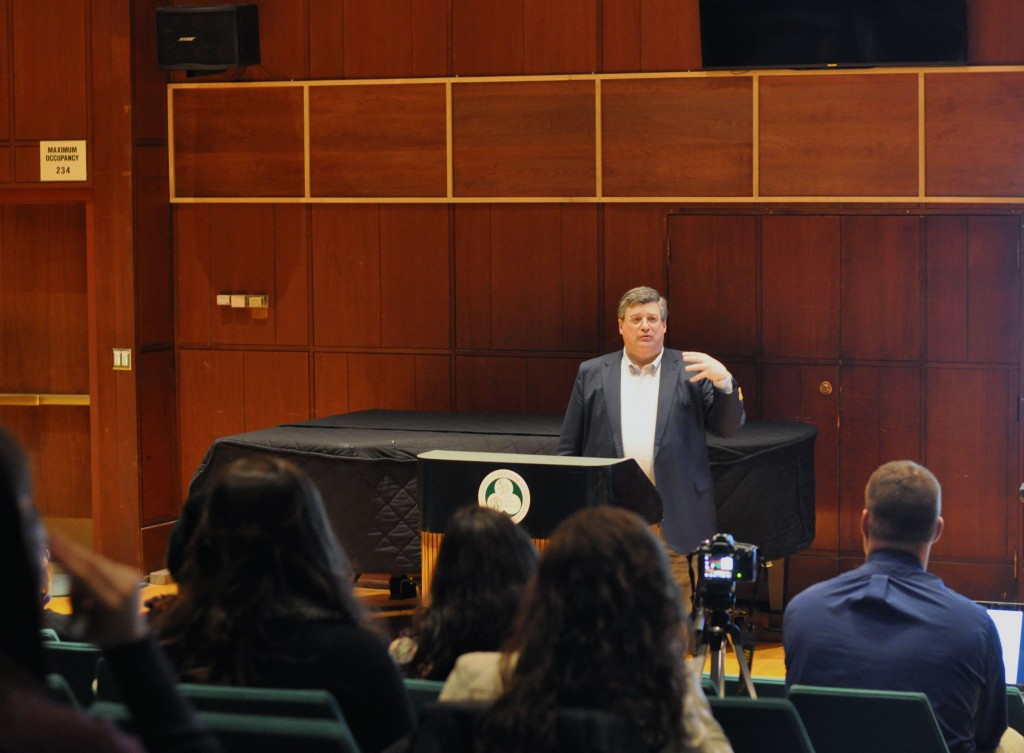
Owen Pell is a litigation partner based in New York City who has worked on cases involving South African apartheid, the desecration of graves in Eastern Europe and art stolen by Nazis. His latest project, however, was talking to students at Binghamton University.
Pell, a member of the class of 1980, spoke Wednesday evening in Casadesus Hall in the Fine Arts Building about genocide and mass atrocity and his involvement in helping to both end and prevent future crimes against humanity.
“Genocide is more than murder, it’s an attempt to destroy a collective,” Pell said. “It’s certainly not a recent phenomenon. One can argue that genocide seems endemic.”
Pell is on the Board of Directors of the Auschwitz Institute for Peace and Reconciliation (AIPR), which works to educate and assist states in developing mechanisms that prevent genocide. According to its website, AIPR is the chief nonprofit partner of the United States government in educating and training for genocide prevention.
According to Pell, genocide and mass atrocities do not just appear out of thin air but are borne out of processes that take years. Corruption and violence in many African countries today, including the Congo, is rooted in a history of colonization.
“Genocide is never random and never spontaneous,” Pell said. “The violence that is happening in the Congo today is a result of the events that happened when King Leopold was still ruling in Belgium.”
Pell explained that one of the main reasons the U.S. military intervened in Libya in 2011 was because language used by then-leader Muammar Gaddafi to describe rebels echoed of past mass atrocities.
“In Libya, Gaddafi crossed the line by going on the radio and calling his adversaries cockroaches,” Pell said. “That was the moment phone calls rang around the world.”
To help prevent future violence, Pell called for more academic research on genocide and said that there is a desperate need for social scientists in both the government and non-government organizations to work together to address the topic.
“The UN and the government flounder around,” Pell said, “but at least they are working to do something.”
Pell said that he sees improvements in international law and documenting human rights violations.
“There’s more transparency now then there was 20 years ago, and with that comes more accountability,” Pell said. “We’re beginning to set up new paths of state accountability.”
Students participated in a question-and-answer session after the talk, which included questions about what advice he had for students wanting to get involved in atrocity prevention.
Anne McCall, the dean of Harpur College and the organizer of the event, said that she was impressed with Pell’s proactive approach to stopping mass atrocities before they happen.
“I think the first highlight is the theory that genocide is preventable, and that there are measurable means of understanding that it could occur and what you might need to do to prevent it,” McCall said. “So this isn’t some sort of surprise tragedy, this is something you can wrap your head around and work on.”


